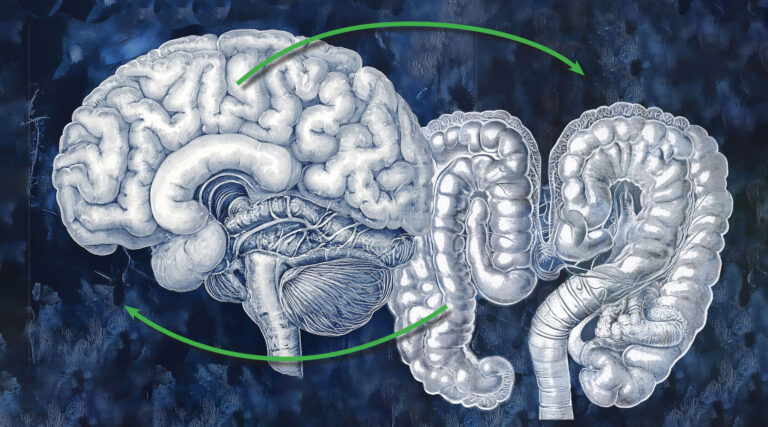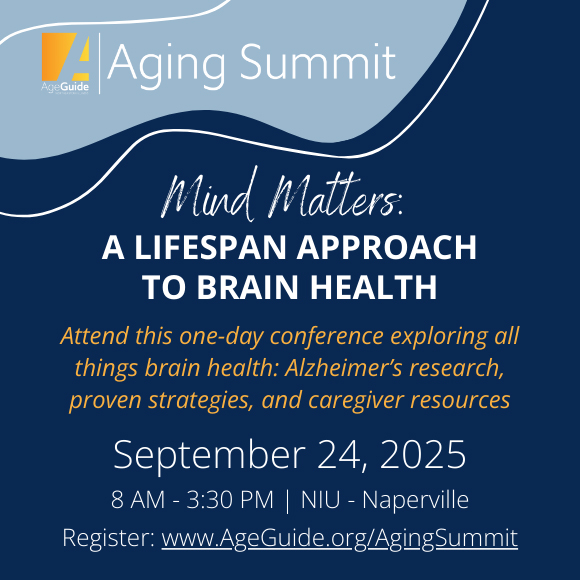
Ezra is a journalist and editor based in Chicago. He specializes in long form, enterprise reporting, solutions stories and environmental topics. From the high peaks of the west to the Blue Ridge in the south, Ezra loves the outdoors and takes every opportunity to trade the flatness of Illinois for a trip to the mountains.
How anxiety impacts digestive health
Fact checked by Shannon Sparks
After retiring from his intense corporate job more than a decade ago, Steve Schalk continues to struggle with anxiety. The stress of constant worry has significantly impacted his gastrointestinal (GI) health.
In addition to his gut health, Schalk, 75, who lives in Woodridge, worries about his other ongoing ailments. He has arthritis and has undergone two hip replacements, a knee replacement, and back and shoulder surgery. Combined with anxiety about his sons’ lives and his own finances, the overall stress has contributed to the deterioration of his GI health in the past few years.
“As I get older, I worry more,” Schalk says. “I just do. I get worried about just about anything.”
Danish Shahab, MD, a gastroenterologist in Chicago’s western suburbs, says as people age, the GI system sees more limited enzyme secretion, putting people at risk of constipation, reflux, and diverticular disease. He says emotional stress on top of that can make these issues worse, resulting in bloating, abdominal pain, and altered bowel movements.
“It’s a bidirectional pathway,” Shahab says. “How you’re doing mentally can manifest viscerally and put you in a cyclical loop. There’s a big subclass in the elderly population who struggle with GI-related symptoms.”
In addition to underlying conditions, many older adults have cumulative stressors, Shahab says. These stressors already increaseone’s baseline anxiety, triggering symptoms of irritable bowel syndrome (IBS) and dyspepsia (abdominal discomfort).
Some people try to mitigate symptoms by changing their diet, only to get the same results from different foods. Such conditions can cause people to stop eating as much or as well because they feel full, even when they aren’t.
“How you’re doing mentally can manifest viscerally and put you in a cyclical loop. There’s a big subclass in the elderly population who struggle with GI-related symptoms.”
Schalk says after spending much of his life traveling and working long hours, his eating habits were never great to begin with. “I’m not a candidate for how to eat right, by any stretch,” he says with a chuckle. “I’ve had a fair amount of stomach issues. It definitely affects your quality of life.”
Shahab says these conditions all create an unhealthy cycle, where new conditions spark new responses, such as losing weight as a result of trying to change one’s diet and then feeling anxious about the weight loss.
“It can feel like you need some magical pill or something that can really solve all the issues, but it distills it down to the basics,”Shahab says. “High-fiber foods can help not only move your bowels consistently but [also serve] as a prebiotic for the gut bacteria, so it helps promote growth for the good kind of bacteria.”
Mike Fitzgerald, MD, a family medicine physician in Naperville, says understanding the importance of gut health helps inform health conditions.
“Our GI system is changing as we age,” Fitzgerald says. The gut slows down, putting older people at greater risk for GI discomfort.
Stress chronically wears on the body, too. Excess cortisol taxes areas, including the gut, putting more of a burden on an already vulnerable aging system.
Fitzgerald says staying active helps mitigate gut issues, as exercise improves brain health. He says he also frequently sees seniors become isolated, spending less time with friends and family, leading to poor mental health.
Moving into communal living situations and care facilities can help prevent isolation. Though many older people initially resist the move, seeing it as a loss of independence, Fitzgerald says it’s typically a positive change.
“Once you see a senior back after they’ve made that life-changing and very difficult decision, 99% of them are happy,” Fitzgerald says.
For Schalk, having a solid support system helps alleviate stress. With a good social circle of friends, he says his health concerns don’t always seem so bad.
“They’ve all got ailments too,” Schalk says. “When you’ve got guys in their 70s and 80s, it comes with the territory.”







